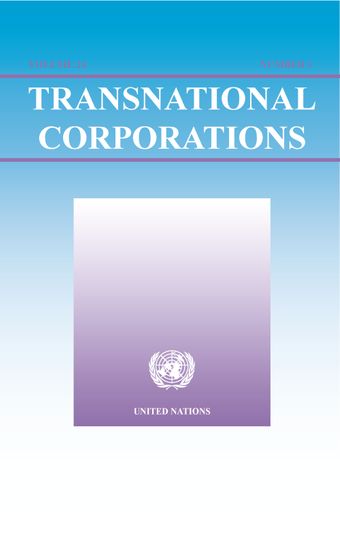-
Uncovering the institutional foundations of specialization patterns in the Indian pharmaceutical industry
- Source: Transnational Corporations, Volume 24, Issue 1, Dec 2017, p. 57 - 79
-
- 18 Dec 2017
- Previous Article
- Table of Contents
- Next Article
Abstract
This article identifies the institutional foundations of the comparative advantages of the Indian pharmaceutical industry in generic bulk drugs, active pharmaceutical ingredients (APIs) and final dosages, and formulations manufacturing. Through studying six institutional areas in connection with the internationalization strategies of nine Indian pharmaceutical firms, this study illustrates how these comparative advantages have been evolving since liberalization of the Indian economy. It demonstrates how, in the post-liberalization era, both up-market outward foreign direct investment (OFDI) and the rise of contract-based partnerships are altering the way in which Indian pharmaceutical firms coordinate their action in the local sector. The shift towards more contact-based forms of coordination could support an industry-wide transition towards specialization in novel drug discovery and development. Although firms, especially larger ones, have been the main orchestrators of this shift, this study concludes that mainstreaming the necessary institutional mechanisms across the industry and employing the appropriate policy tools will be critical to supporting this transition.



